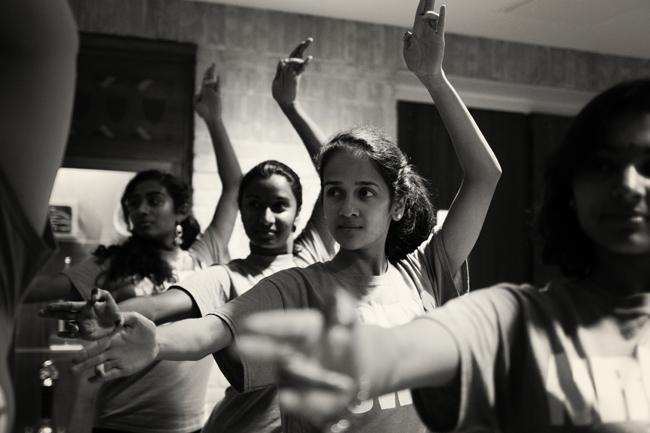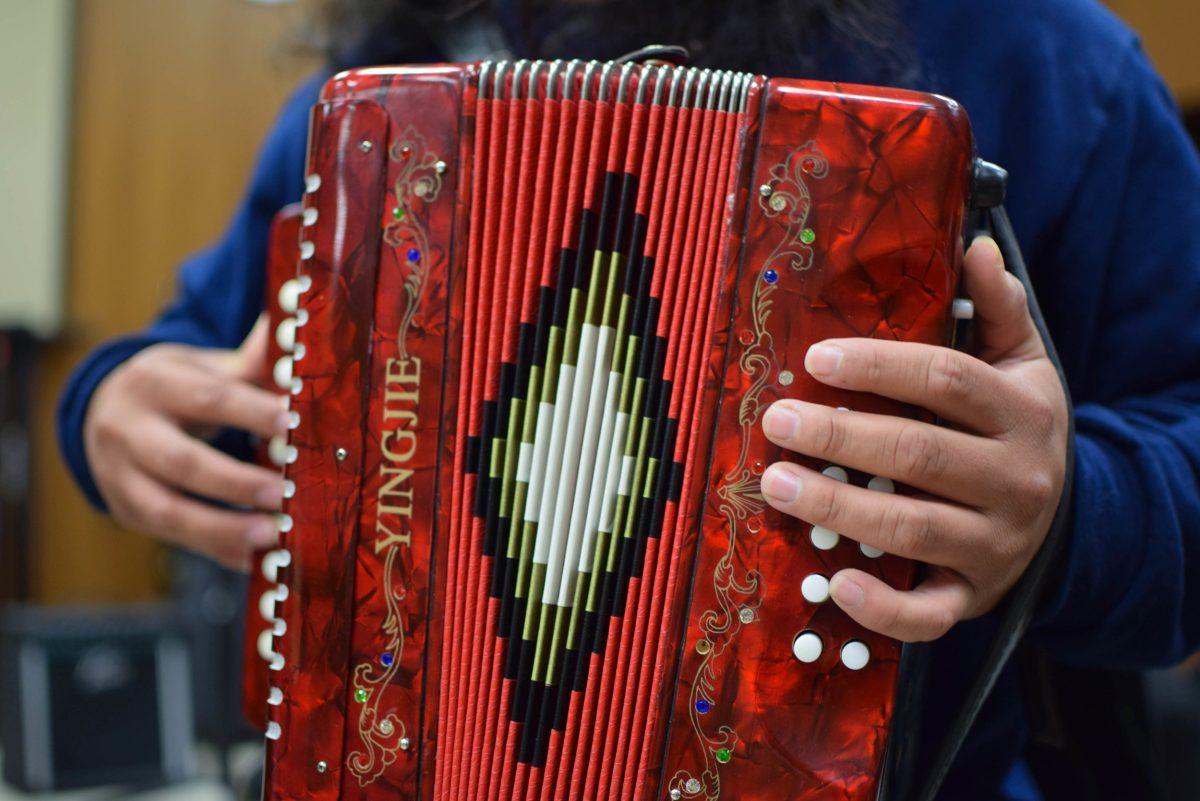Story by Adam Hamze Photos by Hannah Vickers
Children of immigrants are torn between two worlds, constantly seeking a middle ground to call home. They face the challenge of learning to fit in with their environment, while simultaneously upholding the culture of their ancestors. For the women of Nritya Sangam, the only traditional Indian dance troupe at the University of Texas at Austin, every day is a celebration of the past they refuse to let die.
Founded in 2000, Nritya Sangam originally began as a non-profit and has held benefit shows for a multitude of charities. The troupe incorporates two south Indian dance styles in their choreography: bharatanatyam and kuchipudi. Traditional Indian music uses a variety of instruments that are specific to India, such as the kanjira, which resembles the tambourine, and the venu, which is a bamboo flute.
For Arati Warrier, a junior English major and choreographer for Nritya Sangam, the traditional Indian dancing carries more significance than a simple extracurricular activity. She says that the music and dance revolve around Hindu stories and are an artistic way to share the culture with audiences. “So much of it is connected to Hinduism,” Warrier says. “All of it is very culturally significant to me because so much of it is purely about being Indian.”
While the team participates in a number of competitions and events, practice is what helps the women build their identities. Warrier, who has been dancing since she was five, says the activity has helped her and her teammates stay true to themselves in the midst of an unfamiliar environment. “Growing up, most of my schools were filled with white kids, and I didn’t have many Indian friends until I came to UT,” Warrier says. “If you look at dance circuits, there is so much passion [for our culture], it’s amazing.”
For Warrier and other Indian students, finding outlets for their cultural practices has always been difficult, even at the college level. According to the University’s Office of Information Management and Analysis, the UT Class of 2017 was 46 percent White, 23 percent Hispanic, 5 percent Black and 20 percent Asian (the statistics do not differentiate between the different ethnicities within Asia).
As a first generation Indian in America, Warrier says she feels obligated to carry on her culture because of how important it is to her parents. Her mother, Sarita, who moved to the United States in the early ‘90s, was thrilled that her daughter continued dancing even after moving out. “I made sure we took Arati back home to India every year so she could be with her extended family and learn everything about her own culture,” Sarita says. “I am extremely proud of her because it needs a lot of dedication and motivation to keep up this art form.”
Maintaining one’s cultural identity is not always easy. However, Warrier says that although it seems difficult, it’s almost always an option. She says if people don’t think they have time, they can make it, and if there isn’t already an established community, they can create one. “Community building is very important to me, and it’s always useful to find a community of people who understand things the way you do,” Warrier says. “I think the pursuit of your own culture is very important and should never be undermined.”
In addition to the captains and choreographers, Warrier says the new members are a crucial part of Nritya Sangam. Business freshman Divya Abraham joined the troupe this semester and says sharing a passion with other Indian women pushes her to pursue her craft. “A lot of the inspiration that I get is from the older girls,” Abraham says. “I’m really lucky to have them on the team.”
While children of immigrants may feel that their heritage is fractured between their old and new homes, this does not keep them from cherishing the fragments they have and trying to somehow fit them together. For Warrier, art is one of the most unifying pieces of all.“I also think that art, specifically, is such a beautiful and celebratory thing. It’s not as linked with sadness. It’s joyful, dance especially,” she says. “So doing something like that, it feels like a triumph. Like a celebration.”
















































Maisha Rumman • Oct 8, 2014 at 4:52 am
Awesome article!!!